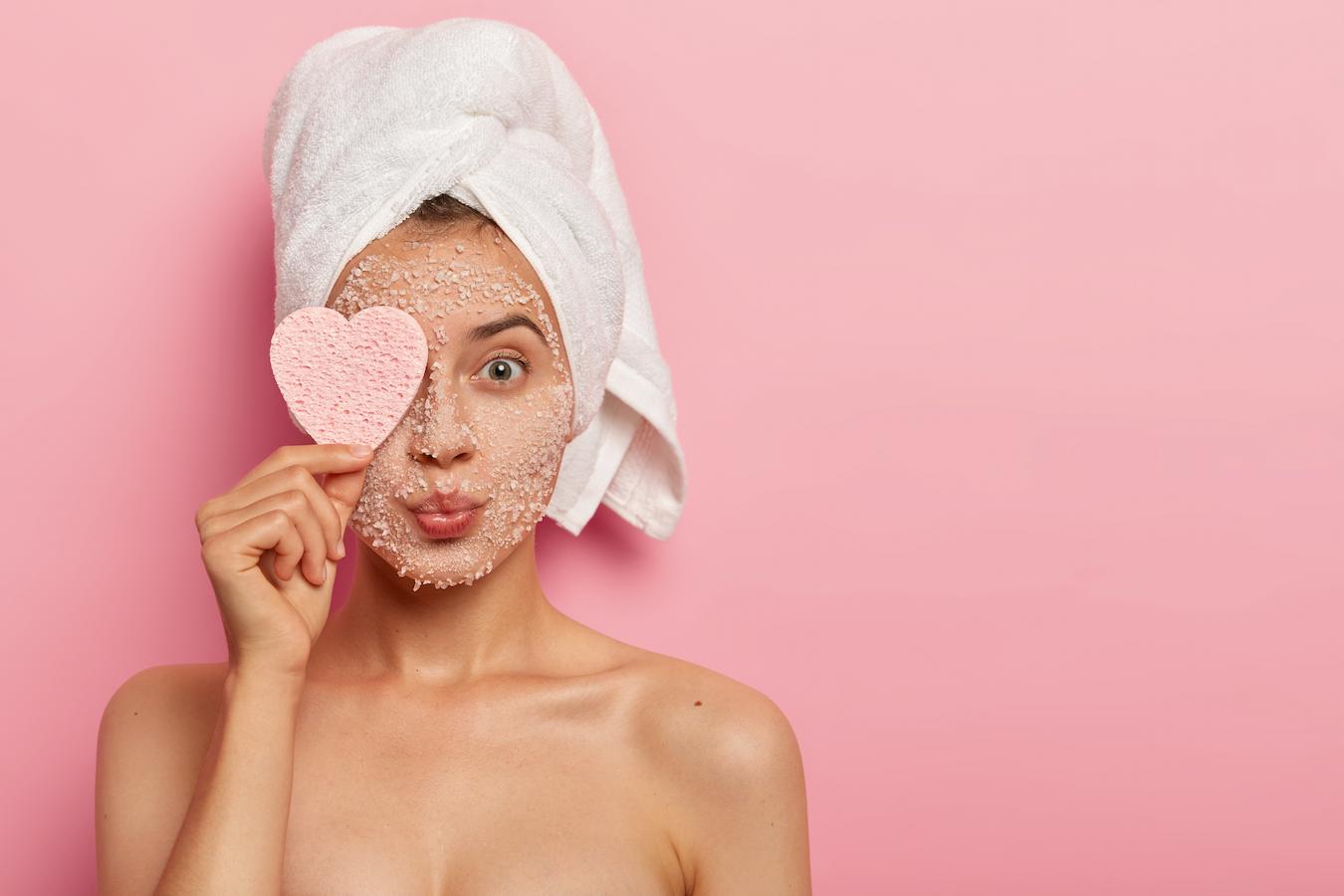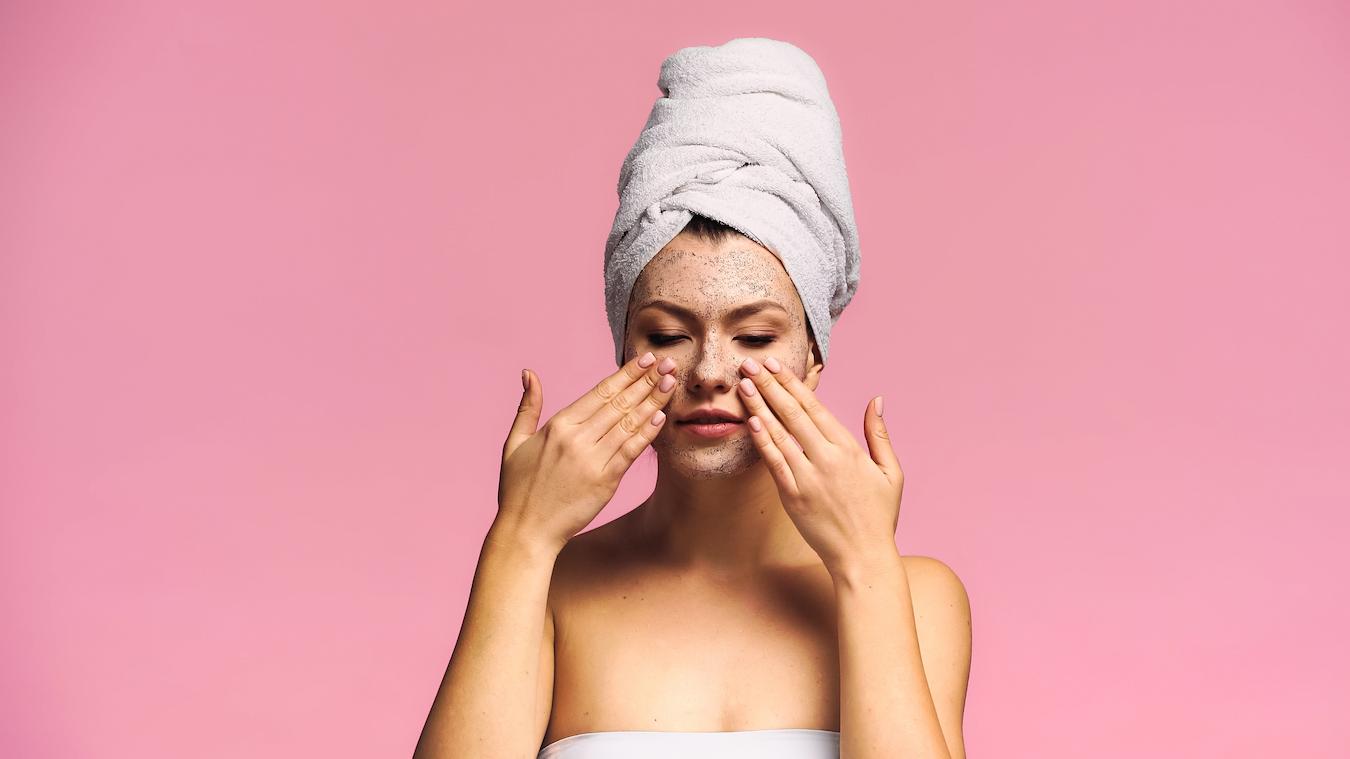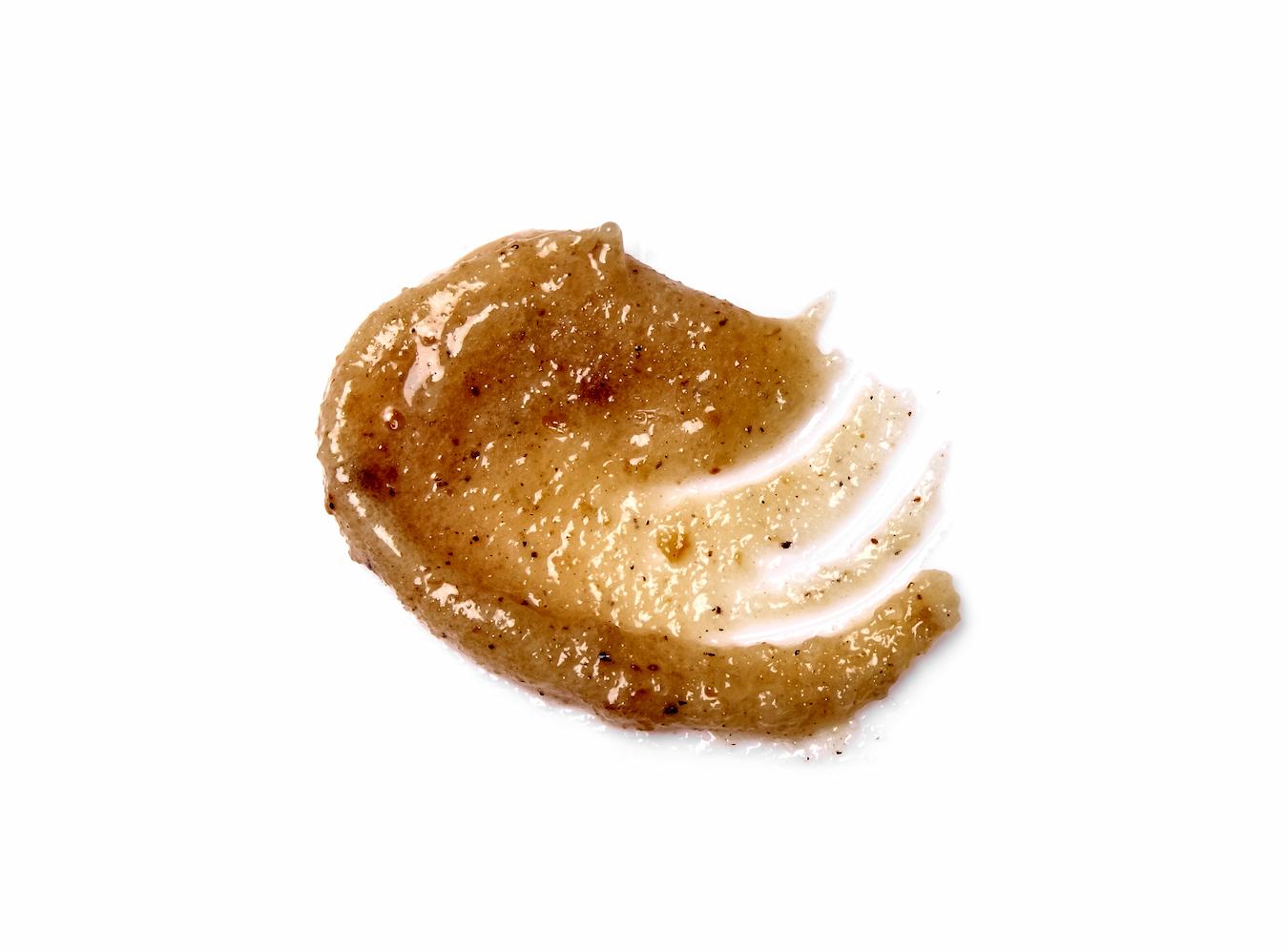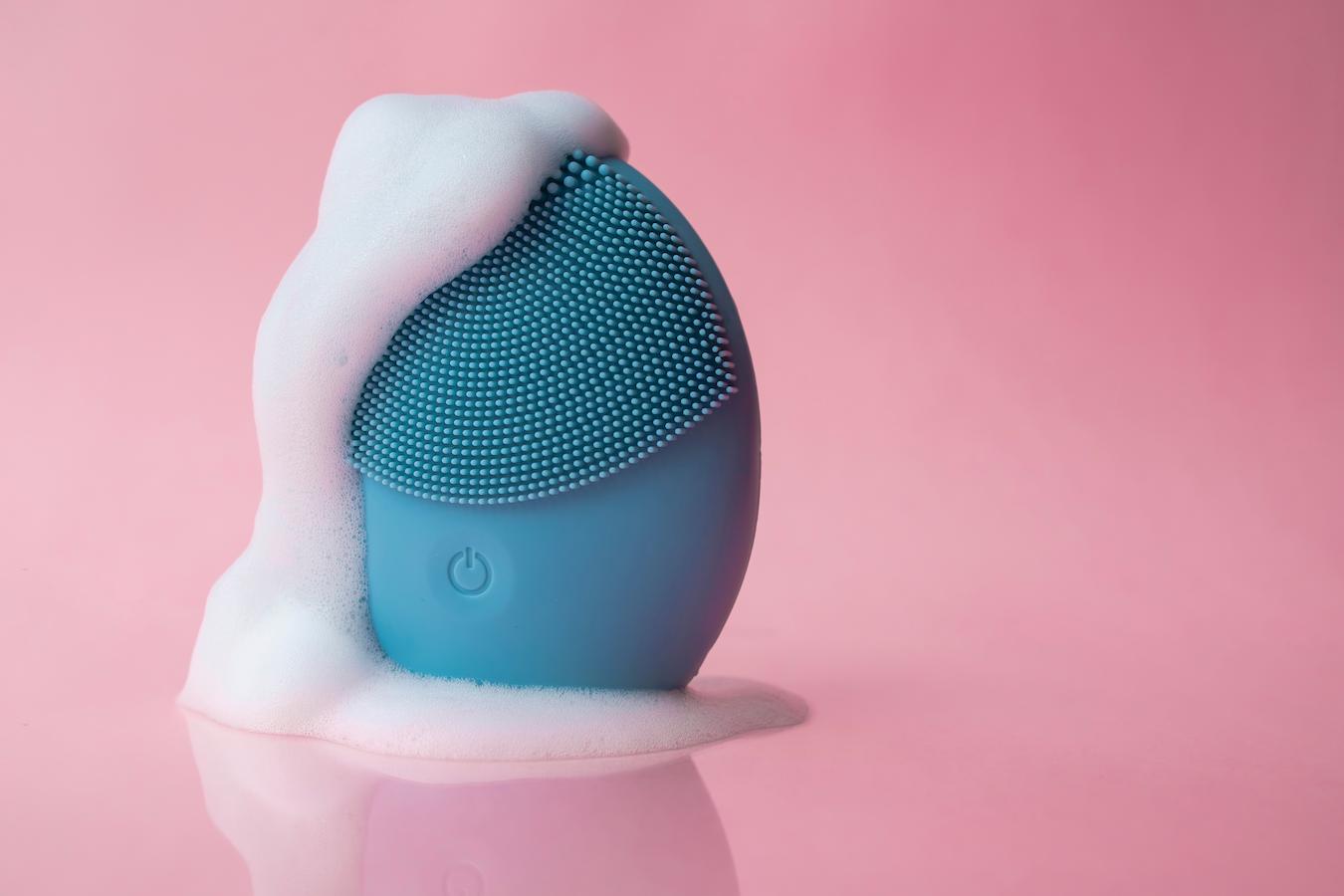When To Exfoliate In Your Skin Care Routine
Your skin changes as you get older. You might see more sun spots, dryness, or wrinkles. But don’t panic, there are actions you can undertake to maintain the healthiest looking skin.
When should you exfoliate? Learn how to include an exfoliant into your regular skin care routine and when to exfoliate!
Most certainly, by this point, you are aware of all the advantages of exfoliation. How it cleans the pores of contaminants because it makes the skin overall healthier, brighter, and cleaner.

One thing you might still be unsure of is whether to cleanse or exfoliate first. While we prioritize washing first in the skincare hierarchy, many have disagreed.
The concept of skin care has undergone a tremendous amount of development and research over the past 20 years. Would the way we cared for our skin have changed if we had understood what we understand now about the significance of skincare maintenance twenty years ago?
How younger could we seem right now if we had all avoided the hot sun, avoided smoking, and made it a point to drink two liters of water daily? On the other hand, we’ve created a sizable health and beauty business to combat our poor skin manners.
See Related: How Do Chemical Exfoliants Work?
When Should You Exfoliate?
Depending on what works best for you, you may exfoliate your face in the morning or the evening as part of your skincare routine. Set aside some additional time once a week to commit to a soothing morning skincare regimen or a magical pamper night because skincare routines can take time! (And, that is a good thing.)
Actions To Take Before Exfoliation
For the mild acids and moisturizing components to work their Enchantment on your skin as safely as possible, you must exfoliate your face as soon as it has been thoroughly cleaned and is free of makeup. Use a two-step cleanser before exfoliating.
A supercharged, revitalizing citrus moisturizing cream and a cleansing bamboo charcoal cleanser are both included in this cleansing combo, which leaves your skin looking beautiful and fresh, and ready for exfoliation.
What’s The Purpose of Moisturizing After Exfoliation?
It is advised to follow up on your use of an acid exfoliation with an SPF-containing moisturizer in the morning.
Most water-based moisturizers fill your skin with more necessary moisture and nutrition with the ability of boosted oils and nutrients after your chemical exfoliator smooths, resurfaces, and hydrates it. Make sure to moisturize after using an exfoliation, whether it’s in the mornings or the evenings, to prepare your skin for cosmetics or the day ahead.
You may also feed your skin powerful moisturizing substances overnight.
Why Does Exfoliation Matter?
Even if you practice a basic skin care routine, exfoliation is a phase you should include to remove dead skin cells, help unclog pores, get rid of bacteria, and keep the balance of your skin. Less acne, cleaner skin, with a more luminous complexion are the outcomes. The choice to either exfoliate or cleanse first is, therefore, less important than being consistent in doing both.

It is more effective for skincare to be used as a whole than in isolation. Although it is not required to exfoliate the skin every day, it is just as crucial as cleansing or hydrating the skin.
Sweat, fat, makeup debris, and other airborne irritants can penetrate your skin’s pores and irritate them. It accelerates the development of whiteheads, pimples, and other breakouts. Additionally, it makes some regions of the skin appear discolored and less colorful.
By removing the dead skin, exfoliation reduces this buildup and makes room for fresh skin cells to replace it. The skin performs best on a clean, exfoliated face.
The body also releases a growth hormone when you sleep, which is necessary for collagen formation. Collagen also contributes to a noticeable reduction in pore size and the visibility of fine wrinkles.
You seem younger and healthier since it helps the natural functions of your skin.
Advantages of Applying a Cleanser First
You can start over by cleansing your face before exfoliating. Exfoliation gets deeper into the pores than a gentle cleaner does. Every day, it’s crucial to wash your face and take off your makeup. The same frequency of exfoliation is not always essential.

We advise using a small amount of one of our exfoliating products once or twice a week, in the morning or evening. To enable the skin to completely absorb the beneficial components of the facial scrub, massage it over the face for about 30 seconds and then leave it on for at least two minutes. Before using toner and moisturizer, rinse the skin and pat it dry.
Advantages of First Using an Exfoliant
Although there are advantages to alternating the skincare activities, generally speaking, fewer individuals choose to exfoliate before cleansing. Cleaning can be done at the same time as sloughing off dead skin cells, extra oil, and other pollutants.
In this context, conventional exfoliation is the better option. It encourages a pleasing appearance and a brighter complexion by employing particular “tools” to scrape off the skin’s top layer.
Applying tiny, circular motions, gently cleanse the face with a damp towel or exfoliating brush. As you remove the outermost layer of skin, this will activate the skin.
But keep in mind not all detergents are designed to exfoliate the skin, and the opposite is also true. Selecting the right instrument is important because some are very abrasive compared to others and might irritate or rip the skin.
Changing Skincare Procedures
Using both chemical and mechanical exfoliation is an option for individuals debating whether to exfoliate after or before cleansing. Mechanical exfoliation is the next step after removing your makeup.
Use your preferred exfoliating tool to scrub away the skin’s top layer. To nurture the skin and provide a foundation for a smooth application of a chemical exfoliator, apply a gentle cleanser next.
To remove or decompose clogged pores, chemical exfoliation uses chemicals or enzymes. It provides a more effective technique to combat the tenacious impurities that make the skin break out, look dull, or lack its suppleness.
Some natural exfoliators have substances that function as both “chemical” and “physical” agents so be sure to look at labels. In essence, some can handle both forms of exfoliation at once!
The representation of skin complexion, pores, crow’s feet, age spots, and wrinkles significantly improved in 100% of the tested women after treatment for four weeks. Its advantages will be increased if you incorporate it into your daily skincare routine together with your other measures. Depending on the sensitivity and type of your skin, you’ll be able to tell which treatment is more effective.
Exfoliation Depending on the Skin Type
Exfoliation is typically more necessary for oily skin types to remove extra oil and shine. Usually, a couple of times a week is enough. However, dry skin only has to be exfoliated once or twice a week to avoid removing the skin’s natural oils. Then, a balance between both is best for people with mixed skin.

Exfoliating helps reduce acne, but some exfoliants or excessive exfoliation might make acne-prone skin much worse. Having said that, some environmental situations can momentarily necessitate changing the routine.
Exfoliation may be carried out more often than usual to maintain pores clean when sweating is increased due to environmental factors, hormonal changes, or dietary changes. On the other hand, prolonged dry months may force you to reduce your exfoliation frequency or alter the method you choose.
No matter when or how you choose to exfoliate, treat your skin gently and adjust your treatment as necessary based on what it responds to and the situation requirements.
Bonus: What Skincare Products Contain Alpha Hydroxy Acid?
Beware of Over-Exfoliating
Exfoliating the skin has several advantages, but you should be careful not to overdo it. There’s such a phenomenon as excessive exfoliation, and it can harm your skin and undo any gains you’ve already made.
It can harm the skin just as much as avoiding exfoliating at all. It all comes down to keeping a balanced diet. Going too far can lead to microtears, inflammation, redness, and irritation, which make your skin vulnerable to infection.
You may be exfoliating excessively if:
Instead of feeling smooth and supple, your face feels heavy and scratchy. To effectively condition the skin, it’s crucial to use an exfoliator that also contains nourishing and hydrating elements.
- The skin is vulnerable to external stimuli like sunshine. Over-exfoliation strips the skin off the protective layer it needs to keep healthy and guard against sun damage, leaving it raw and exposed.
- Breakouts happen more often. Your skin’s natural process is hampered by excessive exfoliation, and your oil glands may work extra hard to produce the oil the skin requires. Acne may eventually result from the extra oil.
- There is inflammation or lasting redness. It can be too abrasive on your skin to exfoliate more frequently than a couple of times each week. More frequently than every week can harm some skin types.
Glycolic acid exfoliators specifically put a lot of effort into cleaning off the dirt on your face. You’ll notice how much softer and healthier it feels after.
Having an excess of a nice thing might have negative effects. Have faith in the process, and let exfoliation handle dealing with pores on a regular but not daily basis.
Why Is Exfoliation Important?
You may already be aware that exfoliating the skin gives it a healthy shine and makes it seem nicer, but you may not be aware of the other benefits it has for your skin’s health. Our cells renew every day, and the tissues that make up their outer layers die as new ones take their place.
Exfoliating makes sure that all of the dead tissue is gone, according to Burns. “If we don’t get rid of the old cells, the skin can seem dull, and eventually our pores can get clogged, which frequently results in acne breakouts or oily skin.”
What Advantages Do Exfoliants Offer?
Exfoliating helps to lighten your complexion, enhance the look of your skin, and most importantly, it helps to prevent pores clogging, pimple spots, blackheads, and whiteheads.

It also helps stimulate collagen production to enhance the skin’s smoothness and integrity, and maintain the skin’s youthful appearance. We advise paying attention to your skin while determining how frequently you should exfoliate. It depends on your particular demands if you prefer biochemical exfoliants over material items or vice versa.
In essence, the younger, stronger skin we desire is there beneath the skin we already have. We may unveil our brighter, stronger, undamaged skin and display a smoother, brighter complexion by removing the dead, dull skin that homes most of our skin problems using chemical or physical exfoliation.
What Safety Measures Should Be Taken When Exfoliating?
You might be tempted to begin exfoliating straight away using any used tools and materials you have at hand after learning about these advantages. However, using a substance that is inappropriate for your skin type may result in micro-tears on the skin’s surface.
Inflammation, blocked pores, damaged capillaries, and scarring could all result from these tears, which let microorganisms into the skin. If exfoliation is done correctly and with the best quality for your skin type, there is no risk.
The frequency of exfoliation and the number of exfoliating solutions you can apply at once depending on the type of skin you have and the other substances in your program. The recommended course of action for those starting out with exfoliants is to use a milder treatment once or thrice a week.
You can gradually work your way up to regular exfoliation. One exfoliation product each day is what we’d advise, however switching between different exfoliants once your skin is used to them might be helpful. If you’re unsure about your skin tone or the products that will best meet your needs and goals for skincare, see a dermatologist.
Even though exfoliating is beneficial for the skin, doing it too frequently or with an exfoliator that is excessively abrasive or disagreeable to the skin can have negative effects including peeling, flaking, and redness. Only use chemical exfoliants for the amount of time recommended on the box. The use of physical exfoliants shouldn’t last more than a few minutes.
Conclusion
Even if your esthetician or board-certified dermatologist advice suggests cleaning followed by exfoliation, you should experiment to find which method suits your skin the best. Every skin type requires different care, and the skin may respond better to one treatment than another.
We can all agree that they are both important, and that is the one thing. Exfoliation can help you gradually get a more radiant, healthy complexion.
In a comprehensive skincare routine, each step, instrument, and skin care item has a specific function. While washing is an essential step to eliminate daily pollutants from the skin, exfoliation improves your daily routine to provide your skin with the most radiant look.
The brief time you devote to skincare will have a significant long-term impact on your skin’s health. Take pleasure in how much nicer your face feels and looks after cleansing and exfoliating it. Once you’ve experienced its advantages, it’ll be simple to continue including it in your normal routine.
Keep Reading: What Is A Good Night Time Skin Care Routine? A List Of Do’s And Dont’s
—
For over 60 years, Viviane Woodard has represented “The Purity of Skincare”. We are the leading beauty brand for skin care products and promote the importance of good skin hydration. Follow us on Facebook, Instagram, Twitter, and Pinterest for skin care tips, product discounts, and more.